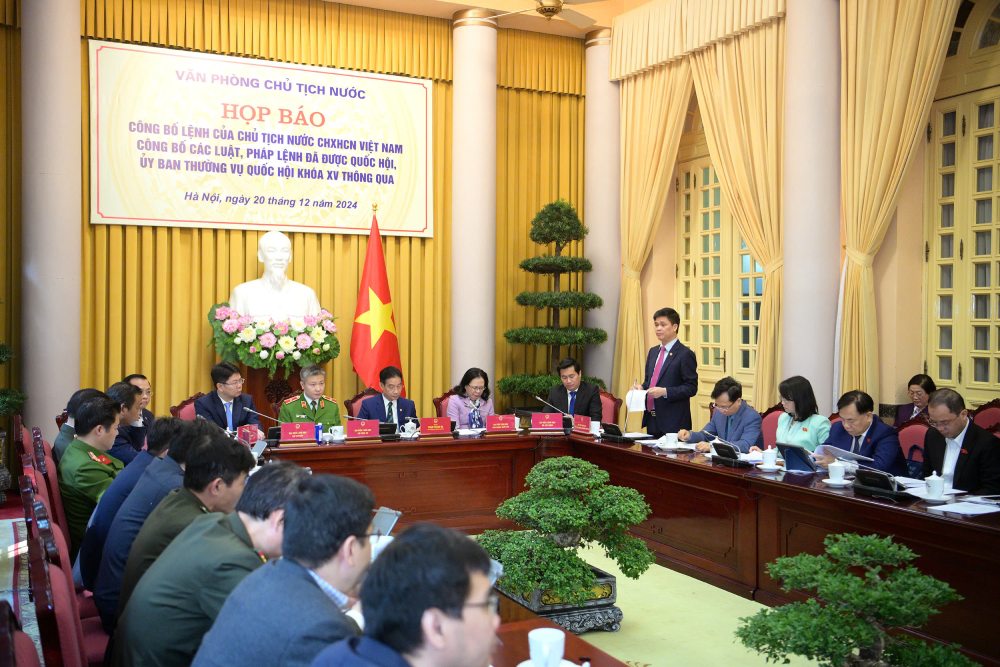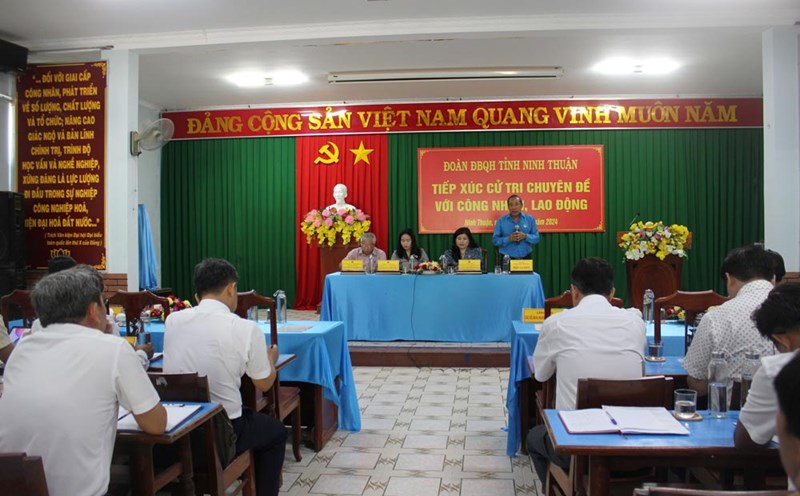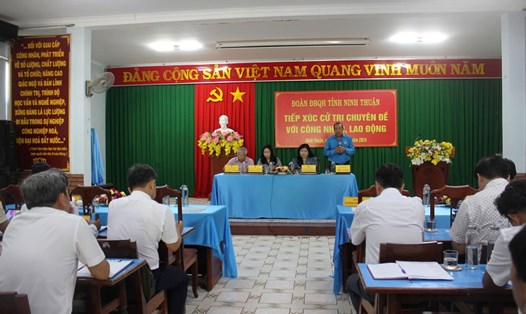On the morning of December 20, at the Presidential Palace, the Office of the President held a press conference to announce the President's Order on laws passed by the 15th National Assembly at the 8th Session.
At the press conference, Mr. Ngo Duy Hieu - Vice President of the Vietnam General Confederation of Labor (VGCL) introduced the basic contents of the Trade Union Law 2024.
The Trade Union Law 2024 was promulgated to overcome some limitations and shortcomings of the Trade Union Law 2012.
The Trade Union Law 2024 consists of 6 chapters and 37 articles; effective from July 1, 2025.
The 2024 Trade Union Law continues to affirm that the Vietnam Trade Union is a large political and social organization of the working class and laborers, established on a voluntary basis, and is a member of the political system led by the Communist Party of Vietnam.
Trade unions represent workers, cadres, civil servants, public employees, and laborers, together with state agencies, economic organizations, and social organizations, to care for and protect the legitimate and legal rights and interests of workers.
At the same time, participate in state management, socio-economic management; supervise and provide social criticism; participate in inspection, examination and supervision of issues related to the rights and obligations of workers.

The 2024 Trade Union Law has added the right to establish, join and operate trade unions for “workers without labor relations”; and stipulates the right to join and operate trade unions for “workers who are foreign citizens” (without the right to establish).
Supplementing regulations on joining the Vietnam Trade Union of employees' organizations at enterprises; more specifically regulating the organizational system of the Vietnam Trade Union and international cooperation on trade unions; supplementing and clarifying prohibited acts.
In the newly passed law, ensuring trade union finances is an important content.
Accordingly, the regulation that agencies, organizations, units, enterprises, cooperatives, and cooperative unions of all economic sectors, regardless of whether a trade union has been established or not, must be obliged to pay trade union fees equal to 2% of the salary fund used as the basis for compulsory social insurance for employees, remains unchanged.
At the same time, supplement regulations on considering exemption, reduction, and suspension of trade union fee payment for enterprises, cooperatives, and cooperative unions when facing difficulties; supplement and clarify tasks of spending trade union fees; supplement regulations on distributing trade union fees to employee organizations at enterprises.
The 2024 Trade Union Law has added provisions to ensure publicity and transparency, further strengthening the inspection, examination, auditing and supervision of competent authorities in the management and use of trade union assets and finances, while ensuring the principle of financial autonomy of trade unions.
To clarify the content of publicizing trade union finances, Mr. Ngo Duy Hieu said that the law has a new provision that every two years, the Vietnam General Confederation of Labor must report to the National Assembly on the issue of revenue and expenditure, management and use of trade union finances. In addition, every two years, the State Audit will audit trade union finances to report to the National Assembly.
Notably, the law also amends the provisions to ensure the rights of trade union officials in the following direction:
Employers are not allowed to unilaterally terminate labor contracts, work contracts, dismiss, force resignation or transfer to other jobs for non-professional union officials without the written consent of the "direct superior union".
The trade union has the responsibility to “legally represent” the case in court to protect the legitimate rights and interests of the trade union official when the employer terminates the labor contract, employment contract, forces the employee to quit or illegally dismisses the employee, except in cases where the trade union official refuses.











